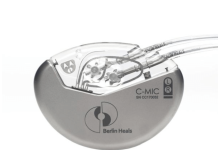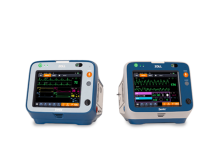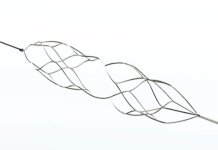Johnson & Johnson MedTech’s Monarch platform and Monarch bronchoscope obtained regulatory approval in China. Approval makes Monarch the first minimally-invasive, robotic-assisted technology approved for peripheral lung procedures in China. It’s also the first Johnson & Johnson MedTech robotic-assisted technology to receive approval in China. The regulatory nod also marks the first such milestone for Monarch outside the U.S.
J&J acquired Monarch when it bought Auris for $3.4 billion in 2019, entering the robotic surgery market. It already held FDA clearance for bronchoscopy and last year picked up clearance for endourological procedures.
The company designed the system to provide bronchoscopic visualization of and access to adult patient airways. Uses include diagnostic and therapeutic procedures. It enables the use of minimally invasive, robotic-assisted technology for peripheral lung procedures. This could improve the ability to access small, hard-to-reach peripheral lung nodules at an earlier stage and with greater precision.
RELATED: ScandiDos quality system receives MDR certification
Will Song, president of J&J MedTech China, said the approval leaves Monarch poised to aid physicians as they “fight one of the most prevalent and deadly diseases in the country” in lung cancer.
“The Monarch team is committed to driving meaningful innovation that changes the way patients experience healthcare,” said Adrian Whitford, president, Monarch. “Expanding the reach of flexible robotic-assisted devices for lung procedures to countries around the world is part of our vision to deliver breakthrough technology that improves clinical outcomes for patients fighting diseases like lung cancer.”
It’s another positive step in the surgical robotics space for the company, which issued an update on its Ottava surgical robot last week. The company said it plans to submit Ottava for FDA investigational device exemption (IDE) in the second half of 2024 to initiate clinical trials.
“Johnson & Johnson was born in surgery with the advent of sterile sutures, and we have since helped surgeons improve care for patients by offering transformative technologies across all types of surgery,” Hani Abouhalka, the company group chairman of robotics and digital surgery at Johnson & Johnson MedTech said in a release. “We believe the future of surgery is personal. Starting with the human impact – the connection between the patient, surgeon, and OR staff – we are unlocking what science and technology can do to improve the surgical experience and health outcomes for everyone involved. Ottava is designed to consistently deliver this experience in any OR globally.”
Editor’s Note: This article was first published on sister website MassDevice.




